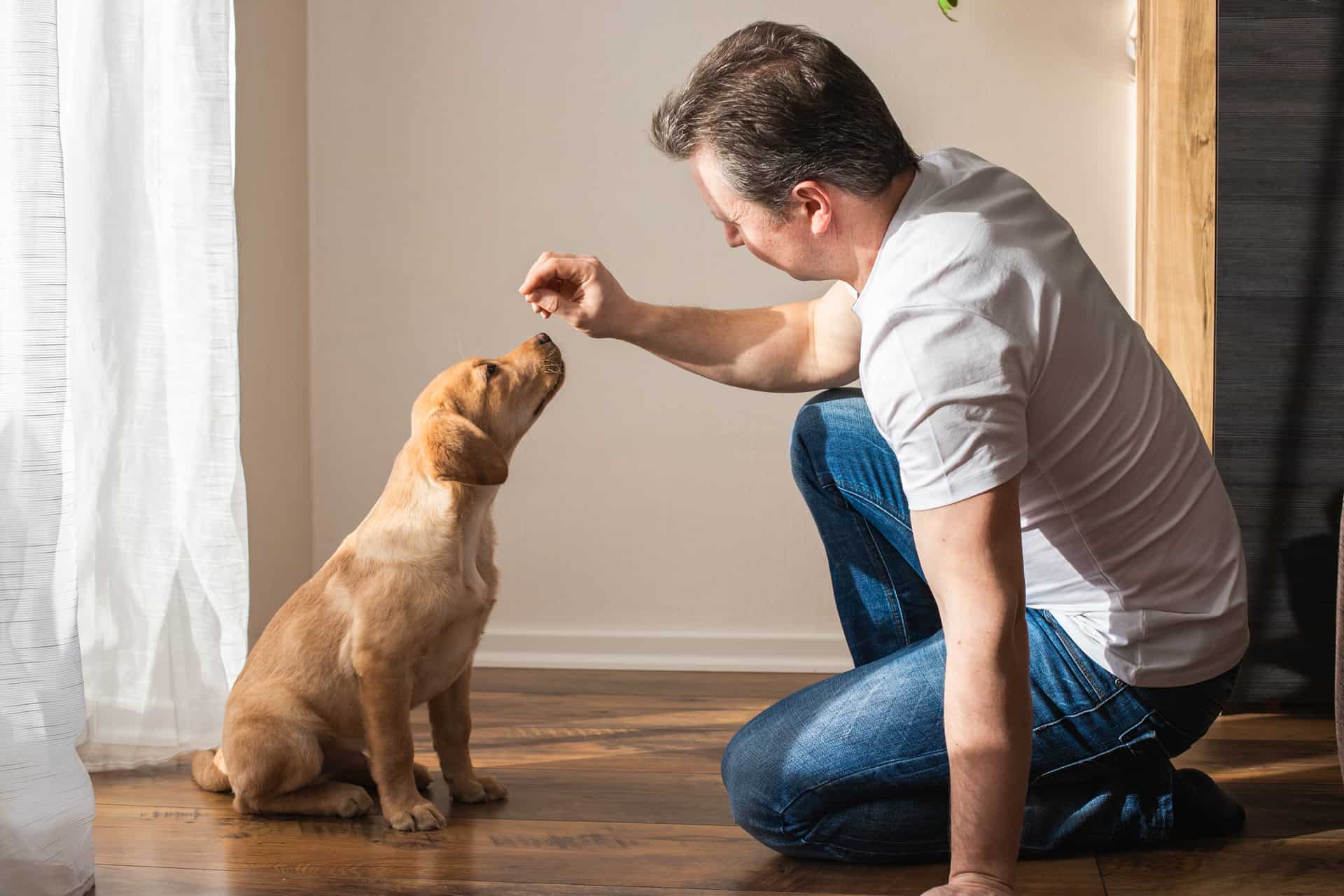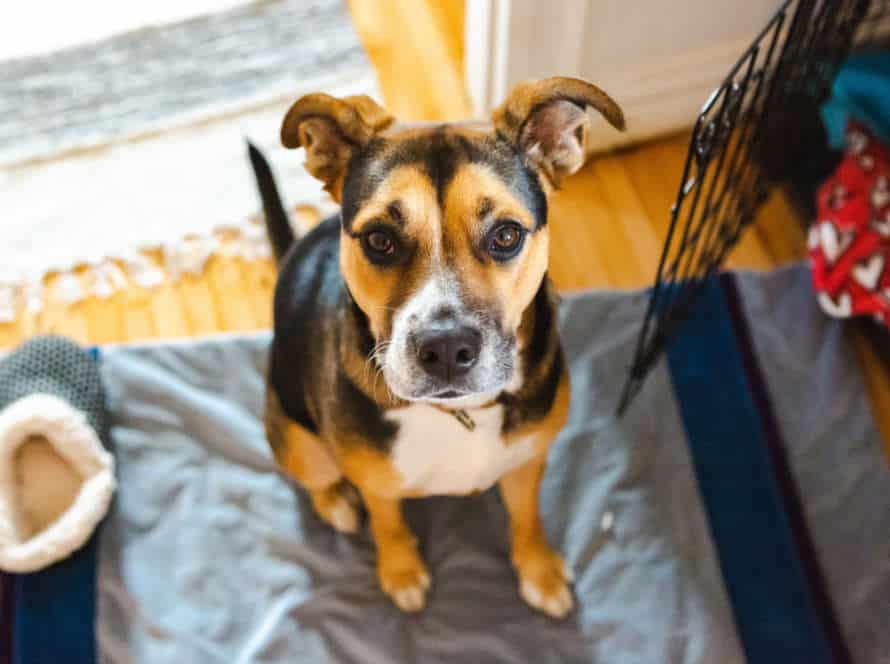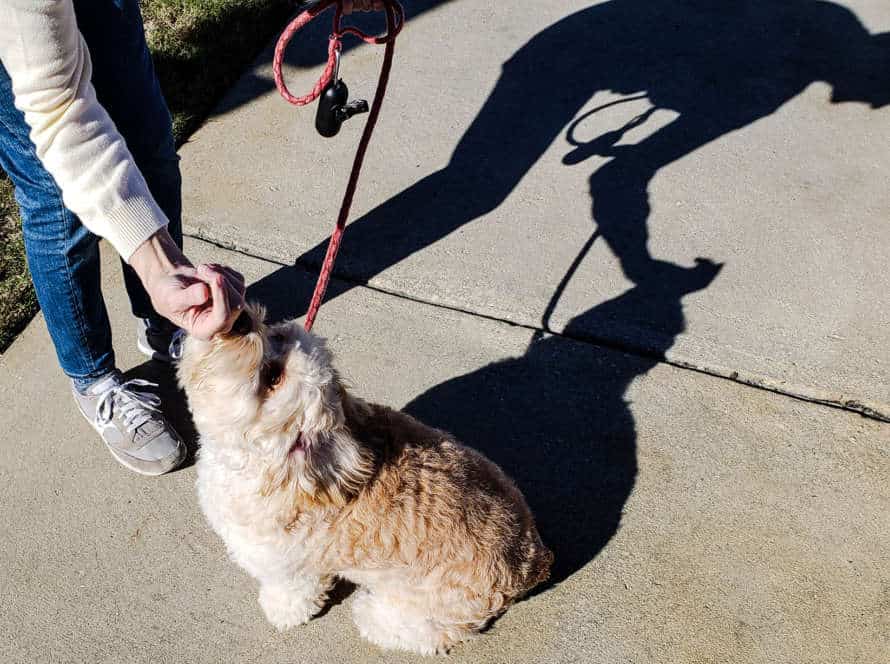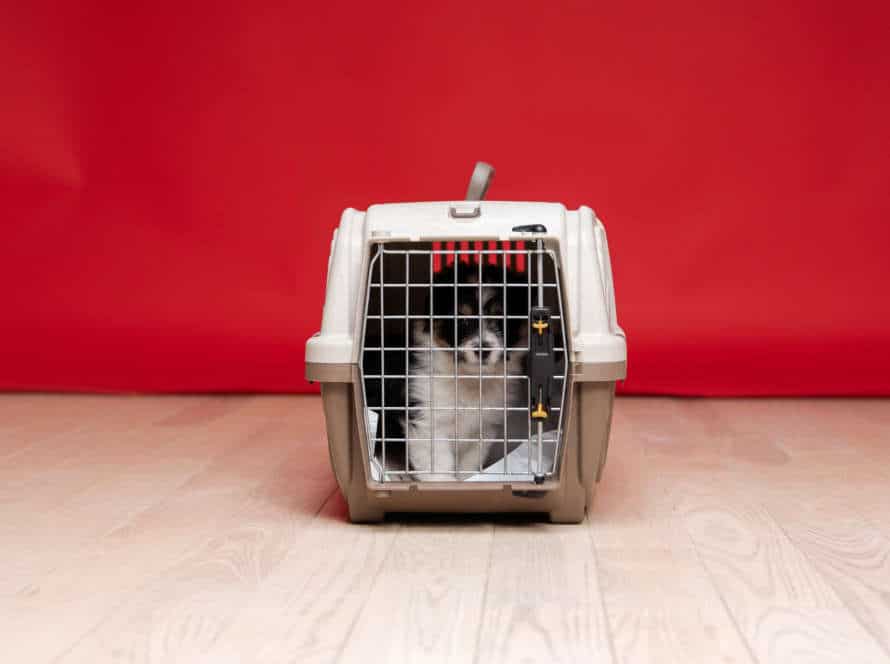The Role of Medical Issues in House Training Troubles
House training troubles with dogs can be from medical issues. UTIs, IBD, and gastrointestinal issues may cause problems. UTIs could mean the dog needs to pee more and feel discomfort. IBD can lead to diarrhea or constipation. Gastrointestinal issues can mean loose stools and frequent going.
It is essential to check for medical issues before trying to solve the house training problems behaviorally. If your dog has troubles, talk to the vet to rule out medical conditions before training.
Medical Conditions That May Affect House Training
There can be various medical issues which make it tough for your pet to get house trained. From cognitive issues to bladder and kidney problems, there are many issues that can hinder your pet’s house training. Let’s look deeper into these medical issues and how they can hinder your pet’s house training progress.
Urinary Tract Infection (UTI)
Urinary Tract Infection (UTI) is a common medical condition that can affect house training in dogs. Bacteria can infect the urinary tract, which includes the bladder, urethra, and kidneys. Symptoms of UTI include frequent urination, difficulty urinating, and urinating in unusual places.
If you spot these symptoms, take your dog to the vet for a diagnosis. Treatment involves antibiotics to deal with the bacteria. Plus, make sure your dog has access to lots of water to flush out the bacteria.
UTIs can cause complications if not treated quickly. In females, UTIs can lead to bladder and kidney infections, which can be dangerous. In males, UTIs can cause prostate infections and perineal hernias.
If your dog is having house training issues, it’s important to rule out any medical problems. Make sure to schedule regular checkups with your vet to keep your dog healthy.
Diabetes
Diabetes is a medical condition that can disrupt house training in dogs. It affects their ability to control their bladder, which may result in accidents inside the house. Medication given to treat diabetes can also cause your pup to drink more water, leading to more frequent urination.
If you suspect your canine has diabetes, take them to the vet for proper diagnosis and treatment. With medication and a balanced diet, you can help manage symptoms and prevent accidents in the house. Plus, establish a consistent potty routine to help your pup regulate their bladder and lessen the chances of accidents.
In certain cases, you may need to hire a dog trainer or behaviorist to address any behavioral issues that might be contributing to house training problems.
Pro tip: Exercise can help dogs with diabetes manage their symptoms and prevent obesity, which is a risk factor for developing diabetes.
Bladder Stones
Bladder stones are hard mineral deposits that can form in your pet’s bladder. They can cause pain and make it harder to pee. Not only that, these stones can cause house training problems.
Other medical conditions can also lead to house training troubles. These include urinary tract infections, kidney disease, and prostate issues. These can make your pet pee a lot, not be able to control their bladder, or lose control over bowel movements.
If your pet is having house training problems, talk to a vet. Treatment could be medication, changing their diet, or surgery – it depends on how bad the condition is.
Identifying Medical Issues in House Training Problems
House training is sometimes seen as a behavioral matter, yet it can also come from medical problems. Detecting if medical issues are present is critical for successful house training. In this article, we’ll see how medical issues can affect house training and learn how to recognize and solve them.
Recognizing Symptoms of Medical Conditions
House training your pet? It’s essential to know that medical conditions may be the cause. Watch out for these symptoms:
- If your dog drinks more or urinates in excess, they may have a bladder infection or diabetes.
- Straining to pee, small urine amounts, or crying? Urinary tract infection or bladder stones.
- Diarrhoea, vomiting, appetite loss, lethargy, weakness? It may be a gastrointestinal issue or bacterial infection.
- Difficulty breathing, coughing, sneezing, runny nose? It could be a respiratory infection or allergy.
Monitor their health and identify any unusual symptoms. Contact a vet for proper diagnosis and to prevent further complications.
Consulting with a Veterinarian
If you’re having difficulty house training your pet, consulting with a vet is essential! Why? Urinary tract infections, digestive disorders and other medical concerns may be the cause of your pet’s lack of bladder or bowel control.
A vet will check for any signs of discomfort or illness through a physical examination and tests. If medical issues are present, they can provide guidance for a treatment plan to help resolve the problem and improve your pet’s house training. Consulting a vet can save time and frustration for both you and your pet!
Treating Medical Issues to Improve House Training
House-trained pets are amazing for a happy home. But if your pet is having trouble, it could be from an illness. Knowing the medical aspects of house training issues helps you get your pet in shape. Medical issues can cause house training troubles. Let’s take a closer look!
Administering Medication
Giving meds is key for curing medical issues that can make house-training pets hard. Common medical problems that can affect house-training include UTIs, diarrhea, intestinal parasites, and bladder/kidney stones. Vet care is essential for treating these.
Here’s some advice for giving meds to pets:
- Follow instructions for dosage and frequency.
- Give medication at the same time daily.
- Hide the meds in treats or food.
- Keep pets hydrated and fed before and after administering.
- Watch out for any bad reactions and tell your vet right away.
- Complete the full course of medication, even if your pet seems better.
A great tip: reward your pet with a treat after taking the meds. This makes them link meds with something good.
Implementing Diet and Lifestyle Changes
Struggling pet owners – house training issues got you down? Implement lifestyle and diet changes to address any underlying medical problems that might be the culprit. Here’s what to do:
- Diet Changes: Consider a grain-free, limited-ingredient diet or homemade meals with your vet’s guidance if digestive issues or food sensitivities are the problem.
- Lifestyle Changes: Obesity and lack of exercise can cause house training issues too. Make sure your pet is active and adjust their diet – for instance, smaller, more frequent meals can help regulate bowel movements.
Put these changes into action – it’ll improve your pet’s health and well-being, plus address any medical issues causing house training troubles.
Incorporating House Training Methods
Medical problems can be a cause of house-training difficulty in dogs. Before trying any house-training plans, it’s important to check if your dog has any medical conditions.
Here are some medical issues that can disrupt house-training and what you can do about them:
- UTIs can make your dog pee more often and have accidents in your house. Treatment includes antibiotics and drinking more water.
- Inflammatory Bowel Disease can cause diarrhea, making it hard for the dog to keep their bowel movements in. Diet changes and medication can help.
- Dogs with diabetes might need to go to the bathroom more often, causing accidents. Insulin therapy and diet changes can control the condition.
If you think your dog has a medical condition, see a vet before starting a house-training plan.
Prevention of Medical Issues in House Training Troubles
House training troubles can have many causes. Some are physical, some are psychological. Knowing the role of medical issues is important. This way, we can prevent house training problems.
Let’s look at each type of medical issue. And, how we can stop them from happening.
Maintaining a Healthy Diet
For healthy pets, a good diet is vital! Eating a balanced, nutritious meal helps keep their immune system, digestion, and weight in check. To prevent urinary tract infections, diabetes, and obesity, feed them quality proteins, complex carbs, and healthy fats. Probiotics and digestive enzymes can also give the diet an extra boost. Consult a vet before making significant changes, especially if your pet has any medical conditions or allergies. Diet and exercise are key for pet health and happiness. That way, house training troubles can be avoided!
Providing Adequate Exercise and Mental Stimulation
Exercise and mental stimulation are very important for dogs. This helps prevent medical problems that can make house training harder. Regular exercise helps regulate a dog’s digestion, reducing constipation or other issues that can be troublesome. Plus, activities like running, walking, or swimming burn off energy that could be used for chewing or digging.
Mental stimulation can reduce boredom, anxiety, and stress. This could lead to accidents, so it’s essential to keep your pup mentally engaged. This can be done with training, toys, or puzzle games. No mental stimulation often leads to dogs finding their own fun, which can be destructive.
Therefore, it’s essential to give your pup regular exercise and playtime. This will improve their health and behavior.
Regular Check-ups with a Veterinarian
Regular check-ups with a vet are very important. They can spot health issues that lead to house training problems. Urinary tract infections and digestive troubles often cause these issues. Your vet can also advise on proper diet and exercise.
Physical exams and preventative care like vaccinations and parasite prevention will keep your pet healthy. If you notice changes in your pet’s elimination habits or behaviour, take them to the vet straight away. Being proactive will help to prevent house training troubles and keep your pet happy and healthy.
Frequently Asked Questions
Q: Can medical issues make house training difficult for my puppy?
A: Yes, several medical issues such as urinary tract infections, gastrointestinal problems, and diabetes can make house training difficult for your puppy as they lead to frequent urination or diarrhea.
Q: How can I know if my puppy’s house training troubles are caused by a medical issue?
A: You should take your puppy for a thorough examination by a veterinarian to rule out any underlying medical conditions that may be contributing to the training troubles.
Q: What if my puppy has a medical condition that makes house training difficult?
A: You should work with your veterinarian to manage the condition effectively and develop a training plan that takes into account your puppy’s specific needs.
Q: Can medications also affect my puppy’s house training?
A: Yes, some medications such as diuretics that increase urine output and steroids that stimulate appetite and water intake can cause frequent urination and increased thirst, making house training more challenging.
Q: How can I prevent medical issues from affecting my puppy’s house training?
A: You should prioritize your puppy’s health by providing a balanced diet, regular exercise, and routine checkups with your veterinarian to catch and manage any potential medical issues early on.
Q: Can behavioral issues ever be mistaken for medical issues when it comes to house training?
A: Yes, behavioral issues such as anxiety, lack of consistency in training, and insufficient positive reinforcement can mimic medical issues, so it’s important to work with a certified dog trainer or behaviorist to properly assess and address the problem.







